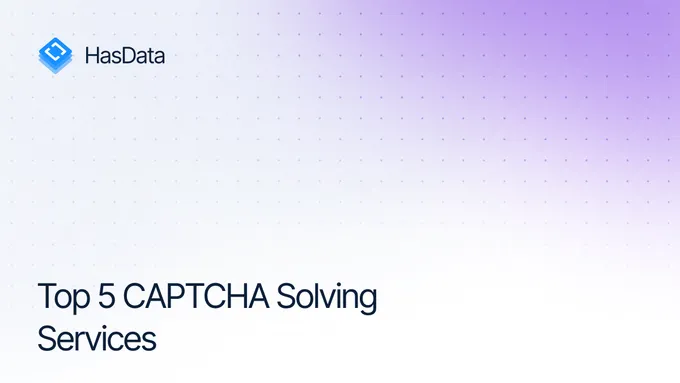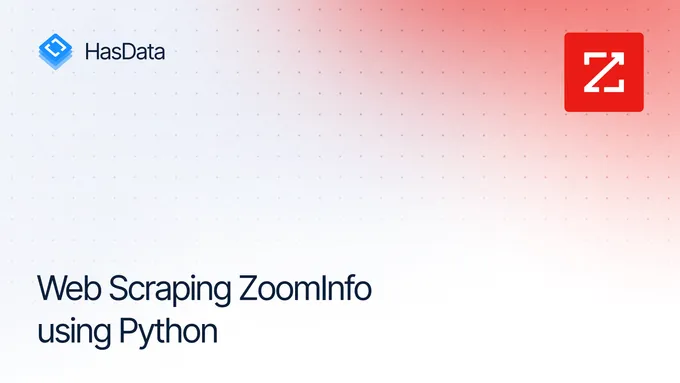Best Web Scraping APIs for 2026: Features, Speed, Price
Most web scraping APIs promise to solve blocks and CAPTCHAs. But what they deliver is often just raw HTML wrapped in a 200 OK status, leaving the real work of parsing and data cleaning to you.
We put seven of them to a head-to-head test against identical websites. We measured effective latency across percentiles, baseline cost at scale, and the actual quality of the final payload.
The best tools didn’t just scrape. They returned clean, structured JSON, making the job feel predictable. In scraping, predictability is the highest praise.
Methodology
We sent 1,000 requests to each API, targeting identical websites during the same time window. We evaluated:
- Latency: The effective P50, P75, and P95 response times, measuring the total round-trip for a successful response.
- Response Quality: All services achieved a 99-100% success rate, so we focused on the consistency and structure of the data returned (e.g., clean JSON vs. raw HTML).
- Baseline CPM: The cost per 1,000 requests for standard, non-JS-rendered pages using default proxies.
- Developer Experience: Quality of documentation, ease of authentication, and available SDKs.
TL;DR Summary Table
HasData is one of the best web scraping APIs, featuring AI-powered tools to parse and structure data. It turns messy web pages into clean, predictable JSON. This smart extraction technology is designed to scale from pilot projects to large, ongoing data pipelines. For comparison, Bright Data provides granular proxy control for complex use cases.
| API | CPM* | P50, s | P75, s | P95, s | Output Format | Notes |
|---|---|---|---|---|---|---|
| HasData | $0.08 | 2.873 | 3.785 | 4.34 | html, text, markdown, json | Clean JSON, retry-safe, LLM-friendly output, low CPM |
| Bright Data | $0.79 | 4.256 | 5.148 | 5.559 | html | Great proxy infra, weak output format (HTML only), extra setup needed |
| ScraperAPI | $0.1 | 9.066 | 10.574 | 12.57 | markdown, text | Slow, inconsistent latency |
| Apify | $7 | 16.788 | 30.537 | 34 | JSON, markdown, text | Actor ecosystem, ultra-flexible, but painfully slow and expensive |
| Oxylabs | $1.25 | 2.715 | 3.879 | 4.301 | json, text | Stable, flexible proxies, supports JSON scraping, but pricier |
| ScrapingBee | $0.07 | 2.177 | 2.394 | 3.284 | html, json | Reliable, fast, good docs, works well with LLM pipelines |
| Zyte | $0.11 | 1.429 | 1.738 | 2.25 | html, json | Fast, JSON+HTML, LLM-ready, but weaker docs and some auth overhead |
*Note: CPM refers to the baseline cost for 1,000 standard requests. Advanced features like JavaScript rendering, screenshots, or residential proxies may increase costs.
HasData

HasData provides a web scraping API focused on delivering pre-parsed, structured data. It leverages AI-powered tools to transform raw HTML into clean, predictable JSON, aiming to eliminate the need for manual parsing. The API supports rich customization via parameters for extraction rules, JS scenarios, and CSS selectors, and it provides both Python and Node.js SDKs. Responses include full metadata, request IDs, and optional screenshots.
Performance is reliable, with a P95 latency under 4.5 seconds in our tests. The output is LLM-friendly by default, available as clean JSON, markdown, or raw text and HTML.
Pricing uses a credit-based system starting at $49/month, which translates to a baseline CPM of approximately $0.25. The cost decreases at scale, with enterprise plans featuring a CPM as low as $0.08. The service is backed by high user ratings and responsive support across chat, email, and Discord.
Best suited for developers needing fast, scalable, and clean data extraction with minimal post-processing for use in production applications or LLM pipelines.
Bright Data

Bright Data’s offering is a scraping stack built on its extensive proxy infrastructure, designed for users who need granular control. Instead of a simple endpoint, usage revolves around its Browser API, giving developers remote control over headless browsers like Playwright or Puppeteer. This approach is flexible, but it requires you to implement all data extraction and cleanup logic manually, as the API returns raw HTML with no built-in parsing layer.
Performance is solid and built for scale, with massive concurrency supported by default—our tests showed a P50 latency of 4.25s and a P95 of 5.55s. This enterprise focus is reflected in the pricing, which has a high entry point at $499/month for subscriptions. Support is responsive, and enterprise clients get dedicated account managers.
Ideal for teams needing granular control and enterprise-grade scale, but requires manual work to extract clean data.
ScraperAPI

ScraperAPI is a straightforward service offering API key access with broad language support through its numerous official SDKs (Python, Node, Java, Ruby, PHP). It provides standard features like JS rendering, geo-targeting, and CAPTCHA handling. The platform also supports scheduled scraping jobs and webhooks, with screenshot capture available at an additional cost.
The primary output is raw HTML that is not cleaned by default, meaning developers must handle the parsing and filtering of content like ads or base64 images. While structured JSON is available, it is only accessible via specialized endpoints. This focus on raw output is paired with moderate performance; our tests showed a median latency of ~9s and a P95 nearing 12.5s. Scalability for high-volume use is dependent on the concurrency limits of the chosen pricing plan.
Pricing is credit-based, starting at $49/month, where the cost per request varies by target complexity. The service maintains a strong reputation on platforms like Trustpilot and Capterra and provides support via an in-dashboard chat.
Best suited for teams needing flexible endpoint control and global proxy support, and who don’t mind post-processing raw HTML for downstream use.
Apify

Apify operates as a cloud platform for running serverless automation scripts called “Actors,” rather than as a direct scraping API. This Actor model is powerful, offering deep control over behavior like concurrency, proxy rotation, and custom code injection via hooks (pre/postNavigationHooks). While its marketplace of pre-built Actors adds flexibility, the concept presents a steeper learning curve than a traditional REST API.
Its performance reflects this architecture: it is slow for single calls (P95 > 30s) because each Actor runs in an isolated container. By default, the output is clean JSON, though other formats require using the Apify platform UI.
Pricing is also complex, combining a subscription with usage-based costs for “Compute Units” (CUs), proxy traffic, and storage. Our baseline test costs approximately $7 per 1,000 requests.
Best suited for workflows needing automation, task scheduling, or reusable components—not for high-speed, low-latency scraping.
Oxylabs

Oxylabs operates as a direct scraping API, using HTTP basic authentication in a username:password format. While official SDKs for Python and Go provide added convenience, the core experience is a traditional REST API.
Performance reflects this model: fast and consistent, with a median response time of 2.71s and P95 at 4.3s. Responses come as clean JSON, with the full HTML under the content field. Custom parsing rules can be configured for structured extraction.
Pricing starts at $49/month with a straightforward subscription. While screenshot capture isn’t supported, the API offers deep request customization - headers, sessions, base64 payloads, redirect behavior, and more.
Ideal for scraping workflows that need reliable JS rendering, proxy-level control, and stable performance at scale.
ScrapingBee

ScrapingBee is a developer-focused scraping API that uses simple API key authentication and offers official SDKs for Python and Node.js. The documentation is functional, offering example queries and a basic API playground.
It supports JavaScript rendering, CAPTCHA bypass, and a range of proxy options. Requests can be customized with user agents, cookies, headers, JS scenarios, resource blocking, and wait conditions. When enabled, screenshot capture and structured JSON output are available.
Performance is strong, with a median latency of 2.18s and p95 at 3.28s. Stability under load was solid, though concurrency limits vary by plan.
Pricing starts at $49/month using a credit-based model. The feature set is well-balanced for typical scraping needs.
Best suited for developers looking for a low-cost solution with enough flexibility for most use cases.
Zyte

Zyte offers a job-based scraping API with API key authentication and an official Python SDK. While its documentation covers advanced use cases well, it’s less beginner-friendly than some competitors. A built-in API Playground allows for quick testing and response previews.
The API supports full JavaScript rendering, CAPTCHA handling, proxy rotation, and screenshot capture. Request customization is extensive - headers, sessions, geolocation, device emulation, and cookie control are all configurable. Browser automation includes actions like scrolling and clicking. Screenshot capture is optional and priced separately.
Performance testing revealed consistent results, with a median latency of 1.429s and a p95 of 2.25s. The system scaled well under load.
Pricing begins at $100/month, billed per request.
Best suited for projects requiring structured data with minimal coding or parsing effort.
Key Takeaways
- Best Value & Scalability: HasData – combines AI parsing, high concurrency, and clean JSON output at the lowest CPM.
- Powerful Proxy Infrastructure: Bright Data and Oxylabs – industry-leading proxy networks, but pricier and require more setup.
- Complex Automation: Apify – highly flexible for chained jobs via its Actor model, but slow and expensive for direct API calls.
Final Thoughts
Choose HasData if you need production-ready data at scale. You get enterprise-grade speed, high concurrency (up to 1500), and AI parsing without the enterprise price tag.
If raw speed is your only metric, choose Zyte. If you need complex, multi-step automation instead of just scraping, look at Apify. Bright Data and Oxylabs are workhorses for projects that require granular proxy control and a substantial budget.
Choose your tool based on your core need. For real-time apps or LLM pipelines, reliable speed and structured JSON are critical. For large-scale analytics, cost at scale and data format become the key factors.



